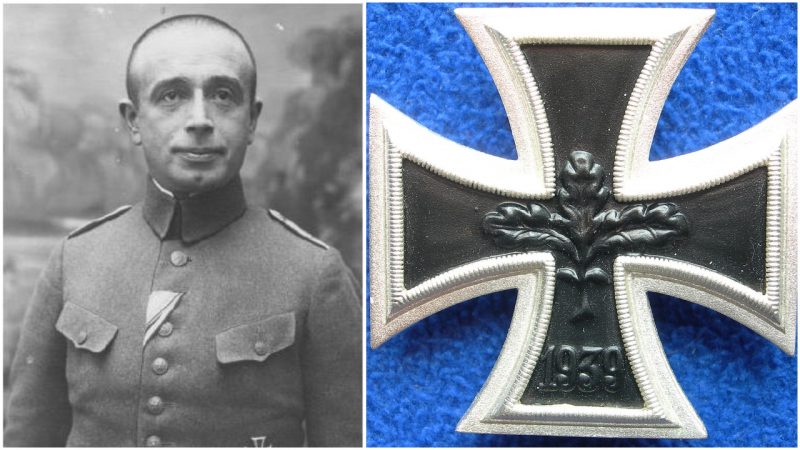Adolf Hitler may not always have been an anti-Semite, or at least not the virulent one that emerged as he led the Nazi Party to power and afterward.
Growing up in the provincial Austrian small city of Linz at the turn of the century, Hitler was likely a product of his environment – Austria had for centuries contained undercurrents of anti-Jewish prejudice within its borders.
Still, it was not until years later, as he experienced the polyglot metropolis of Vienna, that his thoughts became more and more rabid, influenced by such people as Vienna’s anti-Semitic mayor, Karl Lueger.
Even after his experience in the Austro-Hungarian capital, where a small town boy with hope of becoming a great painter was rejected by the Viennese Academy of Fine Arts whose members he believed were either Jewish or “friends of Jews,” Hitler had positive experiences with Jewish members of society.
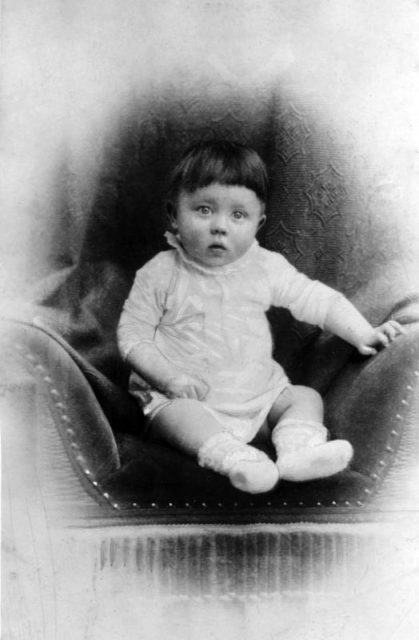
Hitler was born in 1889 in Braunau, Austria. In 1891 his father Alois, a customs official, had moved the family to the Austrian-German border near the German city of Passau. Just two years later, the family moved to Linz, an Austrian provincial capital.
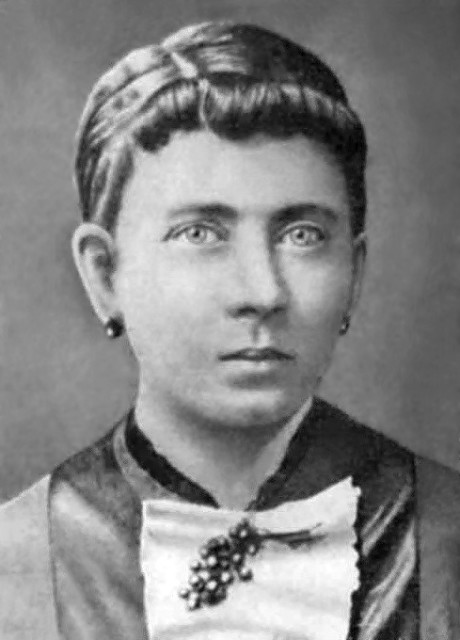
In 1903 Hitler’s tyrannical father died and his mother Klara was left alone to raise Adolf, along with his sister Paula and his half-siblings, Alois Jr. and Angela. A younger brother, Edmund, had died of measles in 1900. It is well-known that Hitler’s mother doted on him, and that Hitler was absolutely devoted to his mother.
In 1904 fifteen-year-old Adolf became sick and had difficulty breathing. The local doctor, Eduard Bloch, was called to help the teenager. In later years, Bloch stated that Hitler was not a sickly child, but he was also not the epitome of health. He stated that his impression of Hitler was of a boy who “lived within himself” — a dreamer.
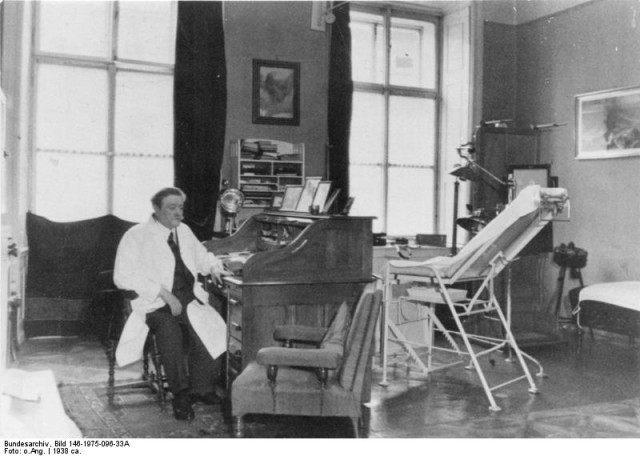
He also said that he had no reason to believe that Hitler’s relationship with his mother was anything but that of a loving son and that there was nothing “pathological” about the relationship. The two were close allies living in an abusive household, and he was her only son.
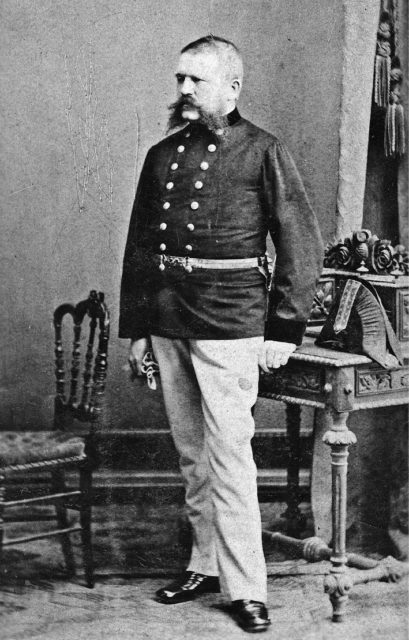
Unfortunately for Hitler (and perhaps the world), his mother developed breast cancer in 1907. The attending physician was Eduard Bloch, who did everything that the medicine of the time, and that was available, permitted.
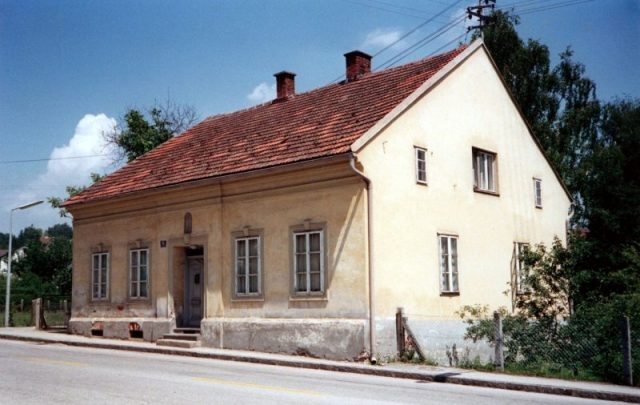
The prescribed medicine for any woman suffering from late-stage breast cancer at the time involved the use of iodoform, an extremely painful and corrosive treatment. Though Klara Hitler’s last days were agonizing, Bloch did everything he could to help her. When she died on December 21, 1907, Hitler (whom Bloch called “the saddest man he had ever seen” upon her death) expressed his gratitude towards Bloch, telling him that “I will always be forever thankful to you.”
Top 10 Surviving Buildings Built By The Nazis During Their Time In Power
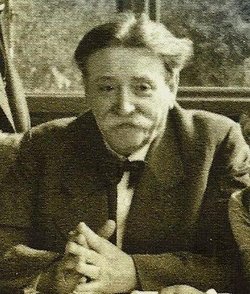
By the way, Eduard Bloch was Jewish.
Hitler had even written a friendly letter to Dr. Bloch in 1937, one year before Germany added Austria to its empire. In 1938, when Germany annexed Austria, Dr. Bloch wrote a letter to Hitler asking for his help during the wave of brutal anti-Semitism that followed the annexation. Remembering his promise, Hitler instructed Bloch (and his wife) to be given special protection, referring to the doctor as “a noble Jew.” Shortly thereafter, Bloch was miraculously able to sell his house for what it was actually worth (most of the Jews in Germany or Austria were paid peanuts for their homes – people knew how desperate to sell they were), and emigrate to the United States, where he died just one month after the fall of the Third Reich. Sadly, however many of Bloch’s extended family were killed during the war.
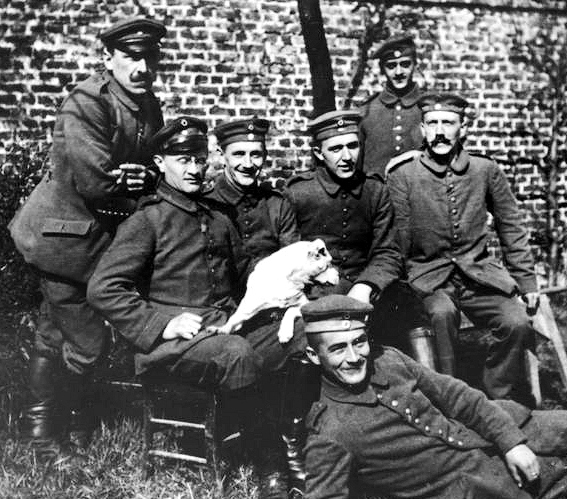
Amazingly, Dr. Bloch was not the only Jewish person who played a role in the life of Adolf Hitler. Hitler was living in Munich, Germany when World War I broke out in 1914. Like millions of others, he enlisted in the army, though with the Bavarian contingent of the German army, not the Austrian, as he should have. By all accounts, Hitler was a good soldier, and he found happiness in both the experience of army life and war. In 1914, he was awarded the Iron Cross, 2nd Class, for bravery at the front during the first Battle of Ypres (Belgium).
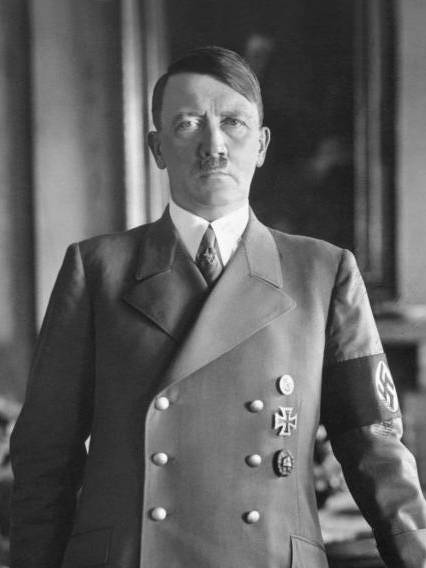
Four years later, the corporal (in German: “Gefreiter”) and future Führer was awarded the Iron Cross, 1st Class, for his role as a messenger, running important information between units under fire.
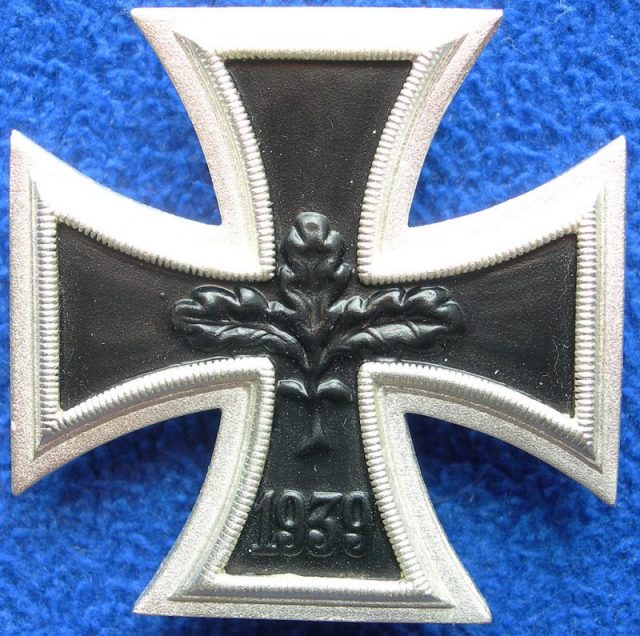
Hitler’s actions must have truly stood out that day, since the awarding of the first class medal was a rarity for a lowly corporal. The man responsible for awarding the Iron Cross to Hitler? Lieutenant Hugo Gutmann, who was Hitler’s commanding officer from late January to late August 1918.
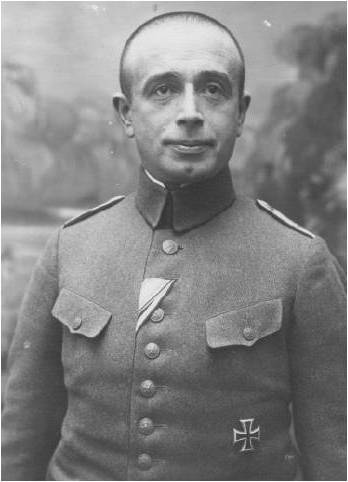
Unlike some dictators, who have military honors bestowed upon them after the fact, or simply have them invented for them, Hitler only wore his Iron Cross, Wound Badge in Black (for numerous wounds sustained under fire), and his Nazi Party Badge.
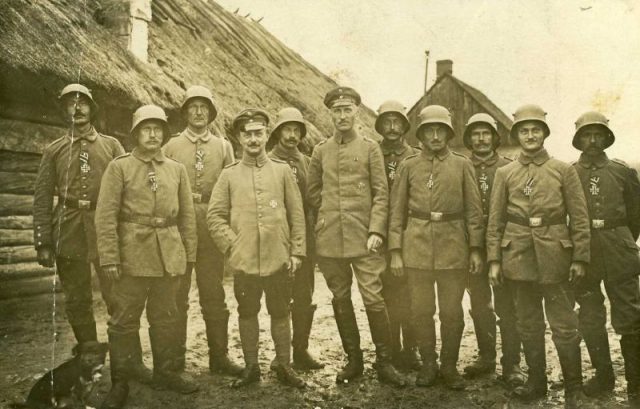
Gutmann had mustered out of the army in 1919, and become a furniture salesman. In 1933, he qualified for his military pension – which, “luckily” for him (and other Jewish veterans) had been protected by President (and Field Marshal) Paul von Hindenburg. However, in 1935, German-Jewish veterans, like the other Jews of Germany, began to suffer even greater discrimination when the Nazis enacted the prejudicial Nuremberg Laws. Gutmann, however, kept his pension, most likely due to the influence of his former corporal, Adolf Hitler.
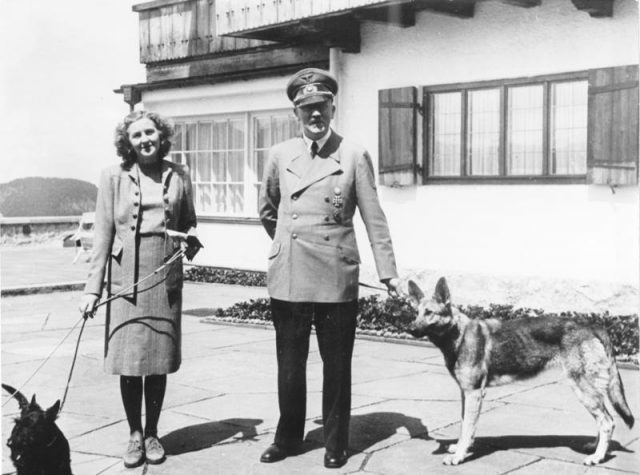
During the wave of intense anti-Semitism taking place around the time of “Kristallnacht” in 1938, Gutmann was arrested by the Gestapo. SS officers with an insiders’ knowledge of Gutmann’s relationship with Hitler had him released from custody. Like Dr. Bloch, former lieutenant Gutmann was allowed to leave Germany in 1939, first stopping in Belgium, but successfully emigrating to the U.S.A. in 1940, ahead of the German invasion of Western Europe.
Hugo Gutmann lived and worked in St. Louis, Missouri as a typewriter salesman. He died in San Diego in 1962.
Matthew Gaskill holds an MA in European History and writes on a variety of topics from the Medieval World to WWII to genealogy and more. A former educator, he values curiosity and diligent research. He is the author of many best-selling Kindle works on Amazon.
